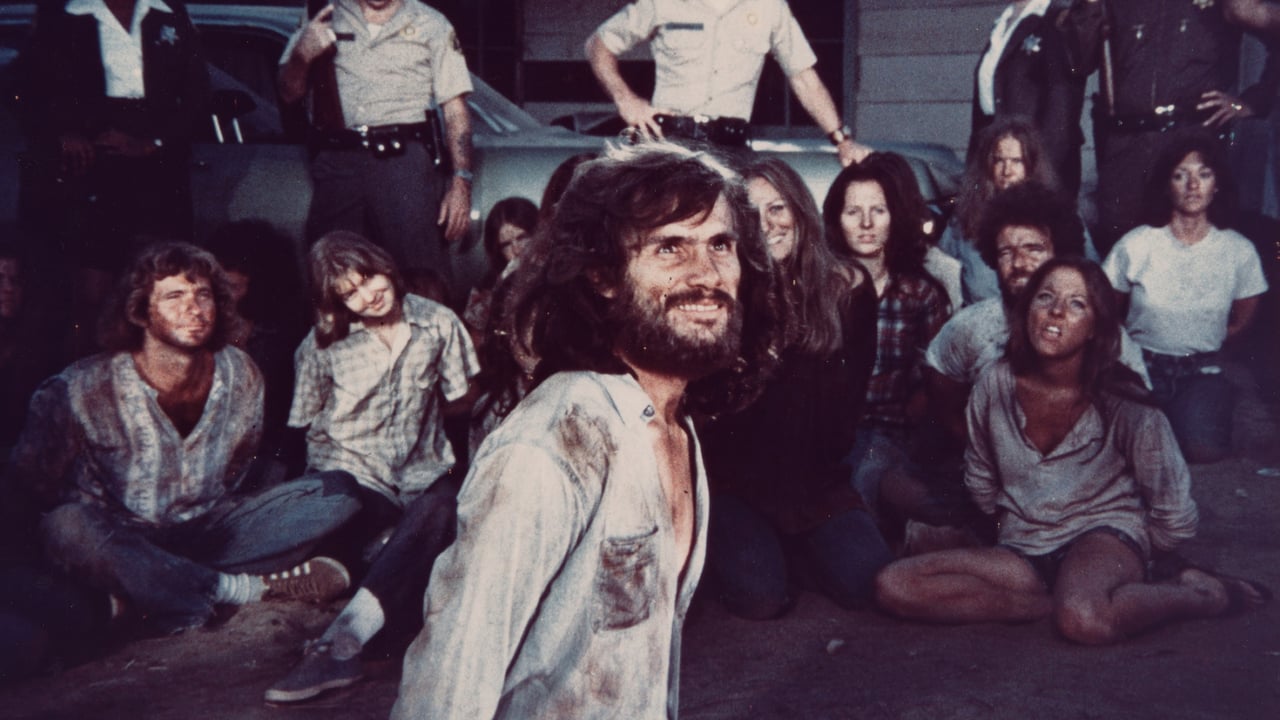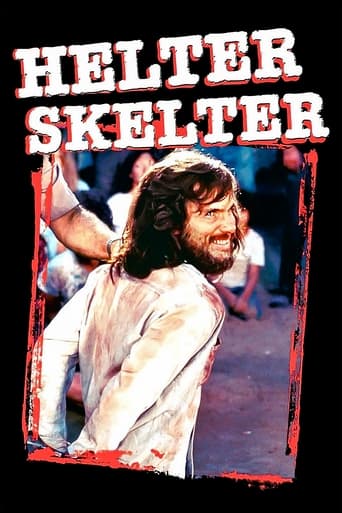ClassyWas
Excellent, smart action film.
Tedfoldol
everything you have heard about this movie is true.
MoPoshy
Absolutely brilliant
Sharkflei
Your blood may run cold, but you now find yourself pinioned to the story.
MARIO GAUCI
Although I was still a generation or two away, I have always thought that the Sixties must have been a great time to be alive – the "Nouvelle Vague" and the full blossoming of art-house cinema, Bob Dylan, The Beatles, psychedelia, the birth of the all-star rock festivals, etc. – and, where I to have a time machine at my disposal, I would probably decide to be a 25-year old stranded in 1967 for the rest of my life (either that or during the Roman Empire)! However, when I eventually realize how painfully naïve and misguided that whole "Flower Power" generation was (the fantastic notion that somebody could change the world through music or achieve world peace through free love) soon makes me reconsider and come back crashing to reality – the same way that the Tate-LaBianca killings brought America back to its senses from its hippie dream-state in the Summer of 1969. Given that the death of imprisoned ex-Charles Manson acolyte Susan Atkins and the surprise arrest of Roman Polanski in a Switzerland airport occurred within days of each other, I thought it was high time that I watched this much-lauded dramatization of The Manson Family court hearings. Since the horrific events were a mere seven years old at the time this 3-hour TV-movie was made (becoming one of the most viewed of all time), it is not surprising that the murders themselves are not inordinately dwelt upon and, being based on the prosecuting District Attorney's best-selling-book, its focus lies on the accumulation of the evidence and the lengthy trial itself. Although eventually a shorter cut of the film was prepared (probably for theatrical distribution in Europe), I cannot say that I found the considerable running time a burden so fascinating were the events unfolding on the screen. Sparked by a formidable performance by George DiCenzo (as the dogged D.A. Vincent Bugliosi) and an electrifying one by Steve Railsback (as the loathsomely hypnotic Charles Manson), the film also gives the opportunity for two supporting female performers to shine: Nancy Wolfe (as the boastful Susan Atkins) and Marilyn Burns (as the Prosecution's key witness, former Manson follower Linda Kasabian). Tom Gries' direction is admirably matter-of-fact and only lapses into flashiness during the re-enactment of the murders themselves (with Kasabian providing voice-over narration from the witness stand) – scenes which, I thought, were further marred by the overly loud playing of The Beatles' all-important songs on the soundtrack…only, what we actually hear are cover versions by an obscure band called Silverspoon! The sequence in which another collaborative male witness explains to Bugliosi how much Manson's mantra was 'influenced' by the music of The Beatles – especially "The White Album" (1968) and "Revolution 9" in particular – is a fascinating one but even a small fragment of said song underscoring it – or elsewhere in the movie – would not have been amiss (but, perhaps, the covering band did not quite know how to tackle that "mind-blowing" epic)! On a personal note, the same witness reveals that, in Manson's mind, the song was referring to the Holy Bible (Revelations Chapter 9) and, for what it is worth, a quote from that book, Revelations 9:15, is also heard (by sheer coincidence, I might add!) in my own first "unpublished" screenplay (which I co-wrote with my twin brother)!! Besides, it seemed awkward to me that no reference whatsoever was made to the reason behind the fact that the fourth Manson Family member personally involved in the Tate-LaBianca murders (Charlie "Tex" Watson) was tried separately than the other four. Apart from the utterly chilling portrayal of the dominance Manson held over his drug-crazed followers and their animalistic lifestyles, I must say that HELTER SKELTER (which, of course, refers to another song off of "The White Album" – arguably The Beatles' heaviest and one of my own personal favorites) also served to reveal a few new tidbits and dispel some myths that I had heard on the now-40-year old events: Charles Manson was not actually present on the premises of Sharon Tate's rented house the night she and her four guests were brutally murdered; Susan Atkins did not cut out Tate's unborn baby boy; Manson's only actual participation in the LaBianca killings was to tie up the two victims; the words "Helter Skelter" – apparently misspelled as "Healter Skelter" – were written in blood on the LaBianca's refrigerator and not Tate's; Charles Manson, who was 34 at the time of the killings, actually admitted to 35 murders; Manson had, by then, already spent half his life locked up in jail and other similar institutions; Manson and his gang were originally only arrested by the L.A.P.D. for setting an 'earth machine' on fire, etc. Seeing how VALLEY OF THE DOLLS (1967) is the only remaining film (from the six significant ones that Sharon Tate appeared in) left for me to watch, it might have been a good idea to give it a first look right now as well but, having just been made aware how one of the most beautiful actresses ever had her life callously ended at 25 years of age thanks to the megalomaniacal delusions of Charles Manson et al, I believe it would be better to leave that campy pleasure for another time.
Rathko
'Helter Skelter' is a three-hour CBS TV movie chronicling, in almost documentary-like detail, the investigation, arrest, and trial of Charles Manson and the Manson Family for the Tate/LaBianca murders of 1969. Nothing is shown of the killings themselves, just the aftermath, and being told from the point-of-view of the investigators, nothing is seen of Manson and his followers in the period leading up to the murders. The whole thing, therefore, is a pretty standard legal procedural thriller, often highlighting the unbelievable incompetence of the LAPD and associated authorities.The movie has dated, not only in its look, but in its style of storytelling. When the CSI team can wrap up three cases in a 40 minute running time, 'Helter Skelter' seems, at times, overly long and leisurely in its pacing – not so much a fault of the movie as a sorry comment on contemporary expectations. This extended running time does, however, present an opportunity to go into minute detail about the case, and patience is often rewarded.The film is lifted above the norm by exceptional performances from Steve Railsback as Charles Manson and Nancy Wolfe as Susan Atkins. So fascinating and genuinely chilling are the two characters that these actors create that the movie seems to fall flat when they are not around. I, for one, was far more interested in them than the investigation and wanted to know more about their background, the origins of their unquestionable insanity, their motives, their relationships, and how the Family came in to existence in the first place. Though these issues are hinted at, none are developed as much as the brilliant characterizations demand.Worth watching for some incredibly cold and chilling performances, but offers little in the way of real explanation for their actions.
Scarecrow-88
Stunning, matter-of-fact television film runs around three hours but holds it's grip the entire time. Steve Railsback is absolutely mesmerizing(..and terrifying)as Charles Manson, the cult leader claiming to be Jesus Christ and commanding his followers(four of them mainly)to murder rich "pigs" in California. Most notable was pregnant actress Sharon Tate, famous director Roman Polanski's woman, along with others in the house that horrible night. Along with those were the La Biancas, also unfortunate chosen victims of the Manson followers. Along with Railsback chilling portrayal was Nancy Wolfe as Susan Atkins who will bring eerie goosebumps as she describes in luridly evil(yet coldly and unapologetically)detail how she murdered Sharon Tate as she begged for herself and the unborn baby she was carrying. Not to mention how she describes the "gurgling sound" that a victim makes choking in their own blood. We also hear about how a fork was used to carve "war" in Mr. La Bianca's torso. Another interesting(..and good)casting choice is Marilyn Burns in the important role of Linda Kasabian..the young follower who would be the ultimate voice that put away five cold blooded killers. George DiCenzo portrays DA Vincent Bugliosi, the man whose life would certainly be effected by the immense strain of putting together an extremely difficult case against Manson..who was the lynch-pin in causing a rest in the fear so many were feeling.The film covers in pain-staking detail the events before, during, & after the case(even the mass media aspects revolving around the case).
postmanwhoalwaysringstwice
"Helter Skelter" is the three hour and four minute mini-series (made for TV movie) from 1976 about the Manson murders of seven years earlier. Clearly some things have changed in broadcasting since this period, and the lengthy running time is a point of disappointment. The film is an important record and representation of a point of great cynicism and uncertainty in America, and the Manson murders certainly took yet another notch off the country's innocence, given any remained.As was the case with the television at the time, broadcasting was generally for a family audience. Even in a production such as "Helter Skelter" those touches are clear, since the story is told between an even-tempered, fact spewing narrator and a narrative that follows the step-by-step dissection of the murder investigation. Sadly, the narrator becomes intrusive very quickly and the story gets it's point across twice as fast as it thinks it does.The basic premise of "Helter Skelter" is very interesting and Steve Railsback's over the top characterization of Charles Manson remains reasonably engaging for about seventy-five percent of the film, but the highly sanitized and dumbed-down touches make for difficult and tedious viewing.

